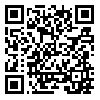Volume 5, Issue 2 (4-2012)
IJMEHM 2012, 5(2): 32-44 |
Back to browse issues page
Download citation:
BibTeX | RIS | EndNote | Medlars | ProCite | Reference Manager | RefWorks
Send citation to:



BibTeX | RIS | EndNote | Medlars | ProCite | Reference Manager | RefWorks
Send citation to:
Bahrami M, Faramarz Gharamaleki A. Conceptual analysis of moral dilemmas. IJMEHM 2012; 5 (2) :32-44
URL: http://ijme.tums.ac.ir/article-1-5042-en.html
URL: http://ijme.tums.ac.ir/article-1-5042-en.html
1- Tehran University, Tehran, Iran
2- School of Theology, Tehran University, Tehran, Iran.
2- School of Theology, Tehran University, Tehran, Iran.
Abstract: (20854 Views)
In this paper, different definitions of moral conflict and moral dilemma at two levels of recognition and observing moral duties are taken into consideration and some instances of usage of conflict in physiology (conflict of stimulant and goals) and sociology(conflict of roles and norms)are mentioned. Also concepts and constraints used in the moral dilemma, especially the concept of "ought to" and the concept of "Inescapable of wrongdoing" are surveyed in a logical analysis. If in definition of moral dilemma, the concept of “ought to” and “duties” being transformable to “commensurable reasons” and their justificatory values, many of apparent moral dilemmas will be solvable and only if the values contained in the duties, being incommensurable and non-infringement, moral wrongdoing will be inevitable. In this research, it will become clear that why and how proponents of the possibility of moral dilemmas under pressure of logical argument against the possibility of moral dilemmas and criticisms of opponents, in order to provide the necessary features for a genuine dilemma have suggested variety and supplementary definitions of moral dilemmas such as: natural, disjunctive, two shape and prohibition definitions. Natural definition of moral dilemma represents a situation in which the agent sees himself as both a moral duty, while he can't do it well. In disjunctive definition agent is required to perform either task. In two shape definition (consisting of the "ought to" and "ought not to"), on the one hand the agent ought to do and on the other hand ought not to do the same. In prohibition definition, the agent should not perform any of the two while he has no choice but to do one.
Type of Study: Review |
Subject:
Medical Ethics
Received: 2013/06/15 | Accepted: 2013/07/10 | Published: 2013/07/10
Received: 2013/06/15 | Accepted: 2013/07/10 | Published: 2013/07/10
Send email to the article author
| Rights and permissions | |
 |
This work is licensed under a Creative Commons Attribution-NonCommercial 4.0 International License. |





